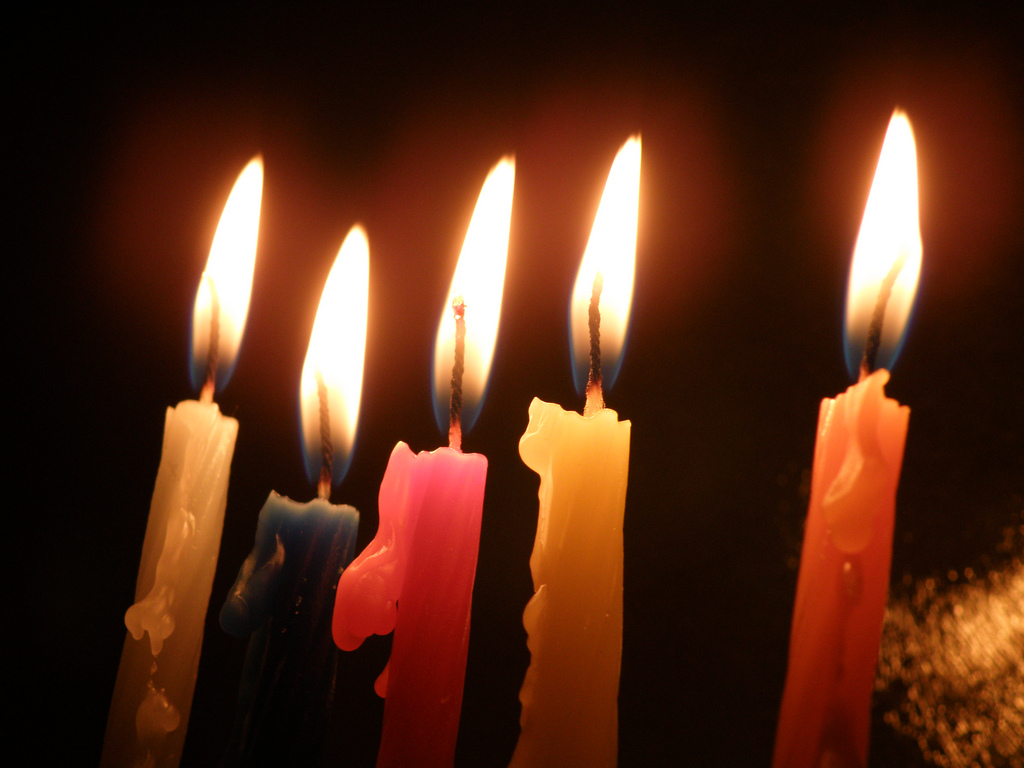Chanukah
Chanukah, which begins on the 25th day of the month of Kislev and lasts eight days, is known mainly for the ritual of lighting the Menorah, an eight branched candelabra. Before we discuss this and other rituals and observances associated with Chanukah, a little historical background about Chanukah is in order.
Chanukah, unlike the other Rabbinically ordained observances (Purim, the Four Fasts), is not mentioned explicitly at all in Scripture. Even in the Talmud, there is little discussion about Chanukah. The Gemora in the tractate of Shabbos (21b) writes: “What is (the reason for) Chanukah? For our Rabbis have taught ‘On the 25th of Kislev, the days of Chanukah, which are eight (start), on which eulogies and fasting are not permitted.’ – For when the Greeks entered the sanctuary of the Temple, they made all of the oil there ritually impure (and therefore unfit for use in the Temple). When the Hashmonean dynasty gained the upper hand and defeated them, they searched and found only one flask of oil on which the seal of the High Priest remained (which indicated it was not defiled). There was only enough in this flask to light (the Menorah in the Temple) for one day. A miracle occurred and they were able to light (the Menorah) with it for eight days. The next year, they established and made (these days) a holiday, with Hallel (praises of G-d) and expressions of thanks (to G-d).”
There are many commentators who elaborate on the Gemora. One of these is the Aruch HaShulchan. His words, which follow, add to the very general description that the Gemora offers. There are more detailed historical works which deal with the background of Chanukah. However, the general description of the Aruch HaShulchan is a good starting place for the discussion of Chanukah which will follow in later issues.
The Aruch HaShulchan (Orech Chayim 670) writes that: At the time of the Second Temple, during the reign of the wicked kings known as Antiochus, decrees were issued on the nation of Israel. These decrees had the effect of anulling the practice of the holy Jewish religion. The Jews were not permitted to study Torah or perform Mitzvos. The money of the Jews was confiscated, and the Jewish daughters were snatched. They went into the Temple where they performed improper acts and defiled the ritually pure. They pained the nation of Israel and pressured them immensely until the point where Hashem, the G-d of their forefathers, had mercy on them and saved them from the evil hands that were persecuting them. Hashem saved them through the hands of the holy and pure Hasmoneans, who were high priests, with Mattisyahu and his sons, who fought with Antiochus. The victory occurred in a way that went against the laws of nature, as the Hashmoneans, with their righteous troops, were very small in number, while Antiochus fell upon them with a great number of people, with many elephants, and with horsemen and chariots. However, Hashem favored His nation of Israel and therefore let the strong fall into the hands of the weak, the wicked into the hands of the righteous, the impure into the hands of the pure. Furthermore, those traitors from the nation of Israel who sided with Antiochus fell into the hands of those who studied Torah. Then, the name of G-d was elevated and sanctified in the world, and the light of Torah with its purity shined, and the name of the nation of Israel reached a level of great stature amongst the nations of the world .
This miracle came to a completion on the 25th day of Kislev. There was, however, another miracle. When the nation of Israel entered the Temple to purify it, all of the people were ritually impure because they came into contact with the dead during the course of the battles. A person who is impure because of contact with the dead can only become pure through a process which takes seven days. It was only after these seven days that people were able to obtain a supply of pure oil. Furthermore, it took 8 days to make the round-trip needed to obtain pure oil. Only one flask of pure oil, which still bore the unbroken seal of the High Priest, was found in the Temple. Hashem performed a miracle, and this flask of oil which should only have lasted for one day was able to be used to light the Menorah in the Temple for eight days, until which time no additional pure oil was available. We therefore have eight days on which we praise and give thanks to Hashem.
For questions, comments, and topic requests, please write to Rabbi Yehudah Prero.


